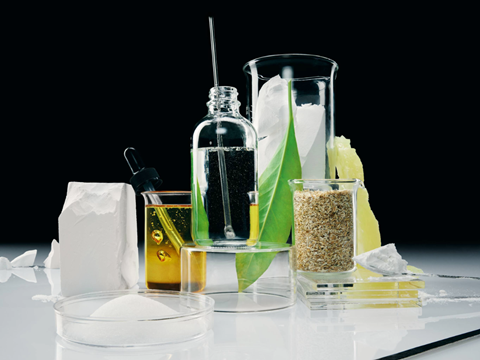
In a new collaborative partnership, Colgate-Palmolive will use Erthos’ AI-powered materials discovery platform to inform its sustainability-minded packaging developments.
Compiling almost ten years’ worth of materials data, in-house labs, and artificial intelligence, the ZYA platform is designed to optimize sustainability-minded material formulations. Colgate-Palmolive will be given direct access to the system and is set to play an ‘active role’ in aligning the system with its packaging roadmap.
The platform will present ‘hundreds’ of industry biopolymers, additives, and naturally occurring polymers by their performance, cost, and compliance. Colgate-Palmolive will use the resource to virtually design materials in line with its performance specs and sustainability targets.
This is expected to speed up material screening and boost the success rates of trials, thus reducing R&D time ‘significantly’. In turn, it is set to streamline the market launch and scaling process for new packaging designs as global policies and consumer demands evolve.
On a wider scale, the partnership is considered a step forward in the use of artificial intelligence to help consumer brands adopt new materials and help tackle plastic waste.
“At Erthos, we believe the future of packaging isn’t just about new materials—it’s about reimagining the systems behind them,” said CEO Nuha Siddiqui. “Through our partnership with Colgate-Palmolive, we’re building a new playbook for sustainable packaging with ZYA—demonstrating how technology, science, and leadership can unlock the scale and speed needed to move the world beyond plastic.”
“Improving the performance, usability, and sustainability of our packaging materials is a key priority for Colgate-Palmolive,” added Greg Corra, senior vice president of Global Packaging at Colgate-Palmolive. “We are very excited to support Erthos in their development of the ZYA platform, and eager to collaborate in accelerating and enhancing the material development process.”
Last year, Colgate-Palmolive expressed its concerns that ‘industry-wide challenges’ related to flexible packaging could become a roadblock in achieving its recyclable, reusable, and compostable packaging targets for 2025. It claimed to have reached 89.5% by the end of 2023.
In other AI-related news, Unilever, Amcor, and Asahi are just some of the consumer brands trialling Greyparrot’s waste intelligence platform, designed to offer product-level recyclable waste data and address knowledge gaps. Using AI-camera systems in material recovery facilities, the solution follows packaging through the waste system and records which units are sorted, recycled, or lost – generating real-world recycling rates for brands to reference in their packaging developments.
Gaspard Duthilleul, COO at Greyparrot, spoke to Packaging Europe to dive deeper into how the technology works and what the company has learned through its implementation.
If you liked this story, you might also enjoy:
The ultimate guide to the Packaging and Packaging Waste Regulation in 2025
How are the top brands progressing on packaging sustainability?
Everything you need to know about global packaging sustainability regulation in 2025
The key to increasing the use of reusable packaging in supermarkets














No comments yet